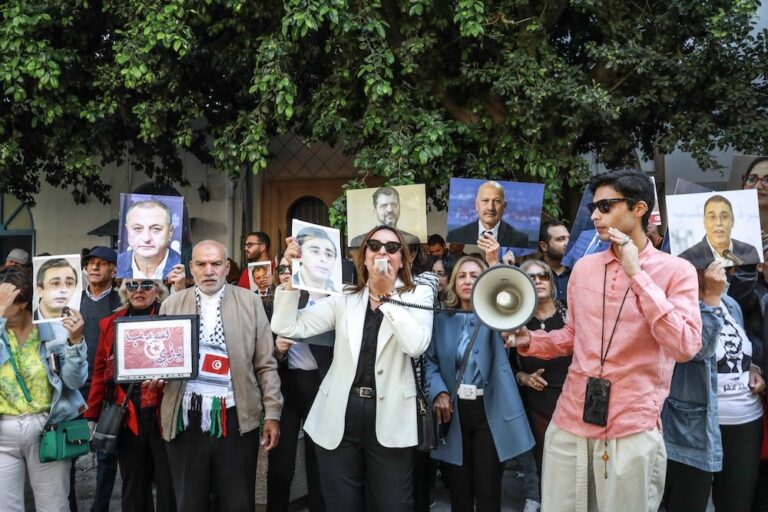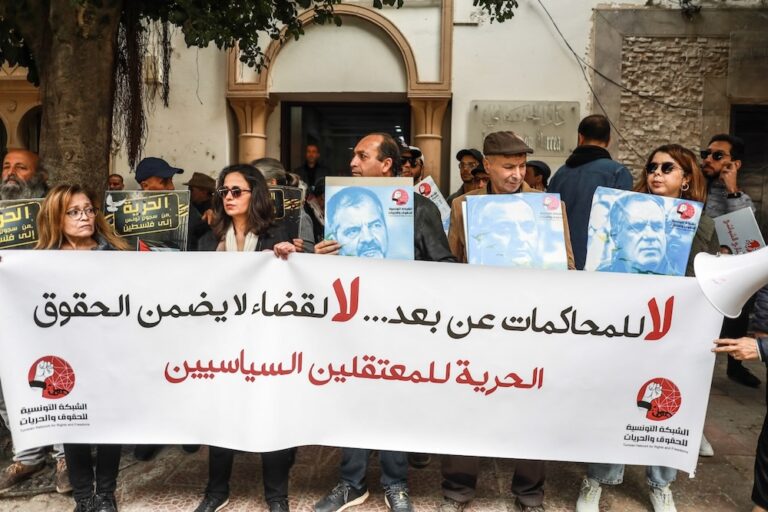For broadcasting the film, Nabil Karoui faces up to three years in prison for libeling a religion, and up to five years for distributing or displaying information "that can harm public order or good morals."
(Human Rights Watch/IFEX) – Tunis, January 25, 2012 – The trial of a television director on morality charges for airing a controversial animated film is a disturbing turn for the nascent Tunisian democracy, Human Rights Watch said today. On January 23, 2012, a Tunis court announced that Nabil Karoui, director of Nessma TV, will go on trial on April 19 for airing the French animated movie “Persepolis.”
On October 7, 2011, the privately owned Nessma television station broadcast “Persepolis,” an animated feature film about a girl’s childhood in Iran. The broadcast led to protests in Tunis because it contained a scene depicting God, which some consider to be forbidden by Islam. On October 14, a crowd damaged Karoui’s home in Tunis with Molotov cocktails.
“Trying someone for speech offenses is a relic of the despotism Tunisians protested against,” said Sarah Leah Whitson, Middle East and North Africa director at Human Rights Watch. “Tunisian authorities should immediately drop the prosecution of Karoui.”
For broadcasting the film, Karoui faces up to three years in prison under article 48 of the old press code for libeling a religion, and up to five years under article 121(3) of the penal code for distributing or displaying information “that can harm public order or good morals.” Karoui’s trial date was first scheduled for November 16, 2011, then postponed to January 23, and again postponed to April 19.
In recent weeks, journalists have increasingly come under physical assault by suspected members of Islamist groups, Human Rights Watch said. On January 23, in front of the courthouse where Karoui’s trial was taking place, Human Rights Watch observed a crowd that had assembled to protest against Nessma assault three journalists. Some of the protesters carried black and white flags often associated with jihadist movements or with the unauthorized party Hezb-al-Tahrir.
Zied Krichene, chief editor of the independent Al Maghreb daily, and Hamadi Redissi, a columnist at Al Maghreb and a professor of political sciences, were leaving the court when crowd members insulted them, spat in their faces, and kicked them. Abdel Halim Massaoudi, a journalist at Nessma TV, was also insulted and assaulted while he was sitting in a café across from the courthouse. Anti-riot police who were present did not intervene to prevent the assaults or arrest the assailants.
On January 17, unidentified men assaulted Sofiene Ben Hmida, a prominent journalist for Nessma TV, in downtown Tunis. Ben Hmida told Human Rights Watch:
I was on Habib Bourguiba Avenue to follow the protest organized by supporters of the government when a group of 50 to 60 young men surrounded me. About 10 of them were wearing t-shirts of Ennahdha [the Islamist party in the governing coalition]. They started by insulting me and accusing me of being an apostate and said I should be grateful I am still allowed to live in this country. They quickly turned violent and started kicking me on my face and shoving me until a group came and escorted me to safety. I got some bruises and went to the hospital for treatment.
(. . .)


